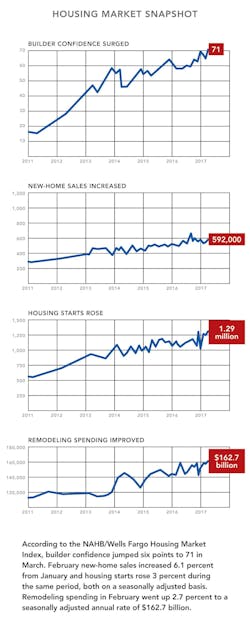NAHB recently called on Congress to work with federal regulators to fix the regulatory rulemaking process. The goal is to ensure that the effects on small businesses are a primary focus for existing and future regulations.
Testifying before the Senate Committee on Small Business & Entrepreneurship, NAHB First Vice Chairman Randy Noel, a home builder from LaPlace, La., told lawmakers that builders must navigate ever-increasing regulations. “On average, regulations imposed by government at all levels account for nearly 25 percent of the final price of a new single-family home,” Noel said.
This is not just a problem for the small businesses that build them. NAHB research shows that approximately 14 million American households are priced out of the market for a new home by government regulations. “It is therefore imperative that new and existing regulation must address policy objectives while acknowledging the burdens of compliance, particularly for small businesses,” Noel said.
Compliance with the Regulatory Flexibility Act, which requires federal agencies to review regulations for their impact on small businesses and consider less burdensome alternatives, continues to fall far short of the act’s objective, Noel told lawmakers. He cited a rule issued by the Occupational Safety and Health Administration (OSHA) to regulate worker exposure to crystalline silica that OSHA said carried a cost estimate to the construction industry of approximately $511 million per year.
An independent study found that the true cost would be nearly $5 billion per year. The study said that the OSHA cost analysis had omitted some 1.5 million workers in the construction industry who routinely perform dusty tasks on silica-containing materials, and it failed to account for a variety of indirect costs associated with setup, cleanup, materials, and productivity penalties.
“Complying with the resulting rule is both technologically and economically infeasible for businesses and more importantly, the rule will do little to improve the health and safety of my workers,” Noel said.
(Click charts to enlarge)

